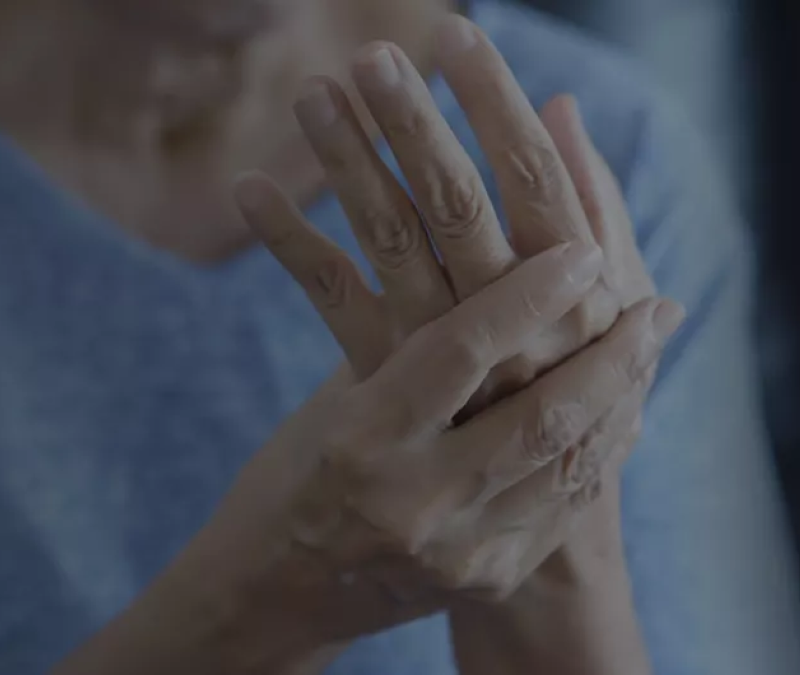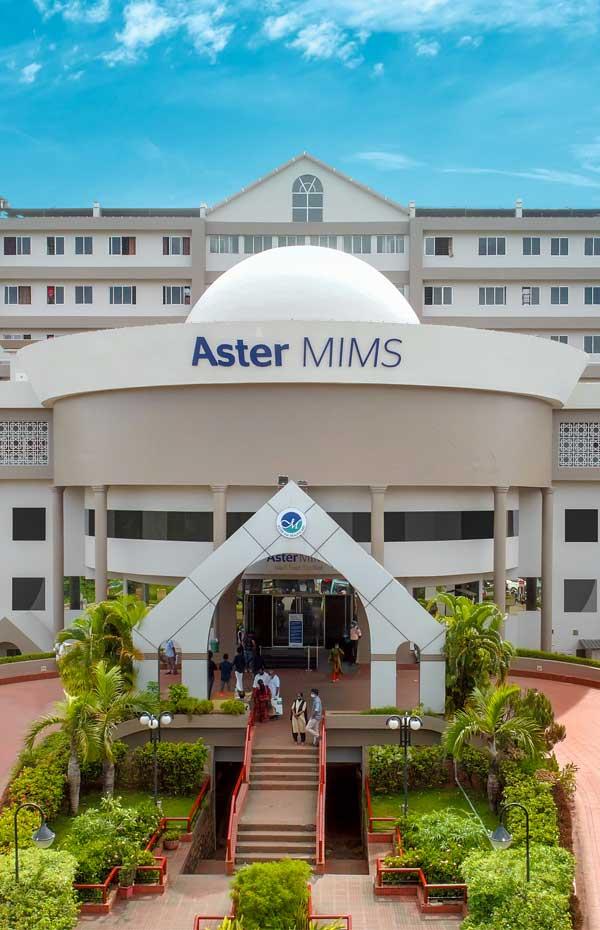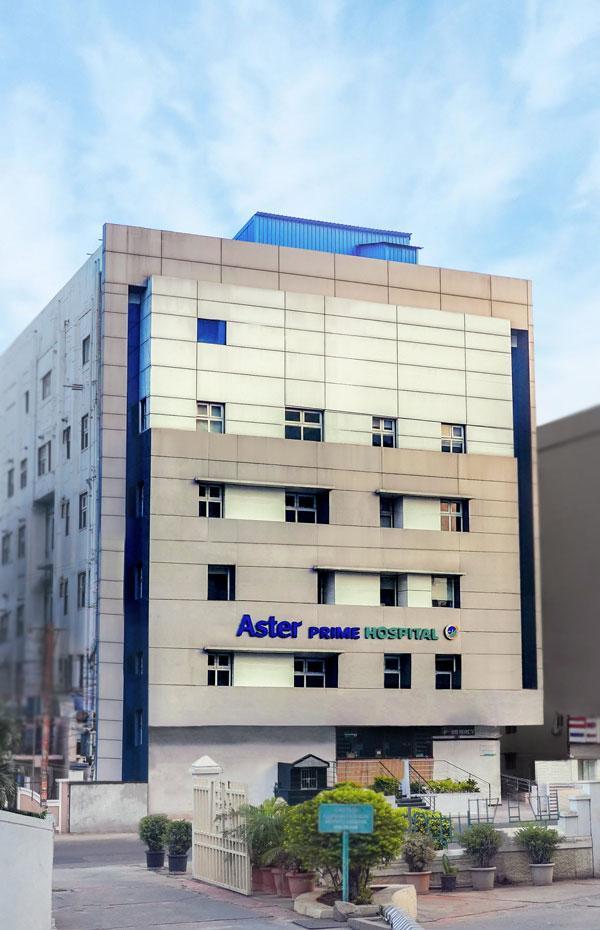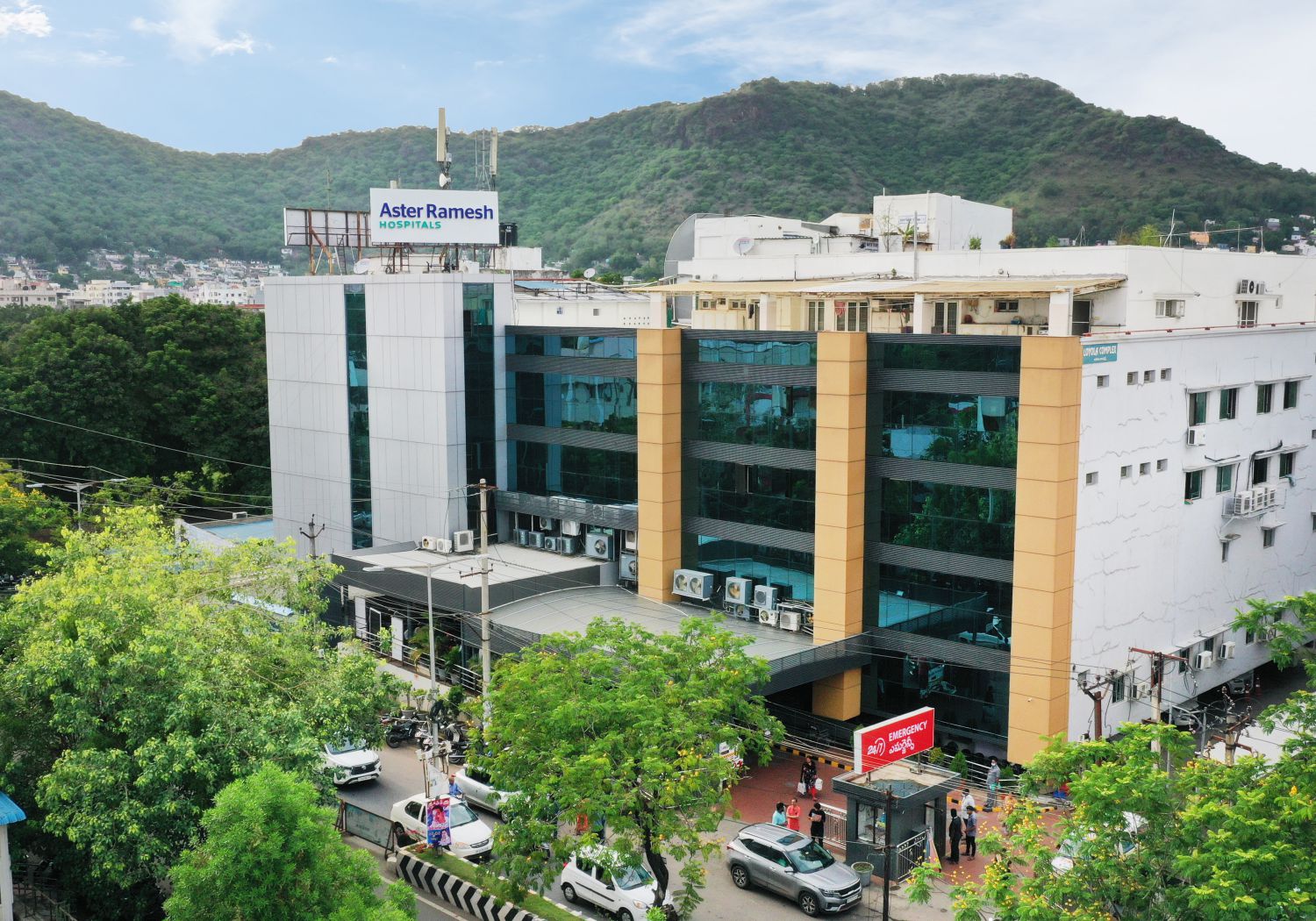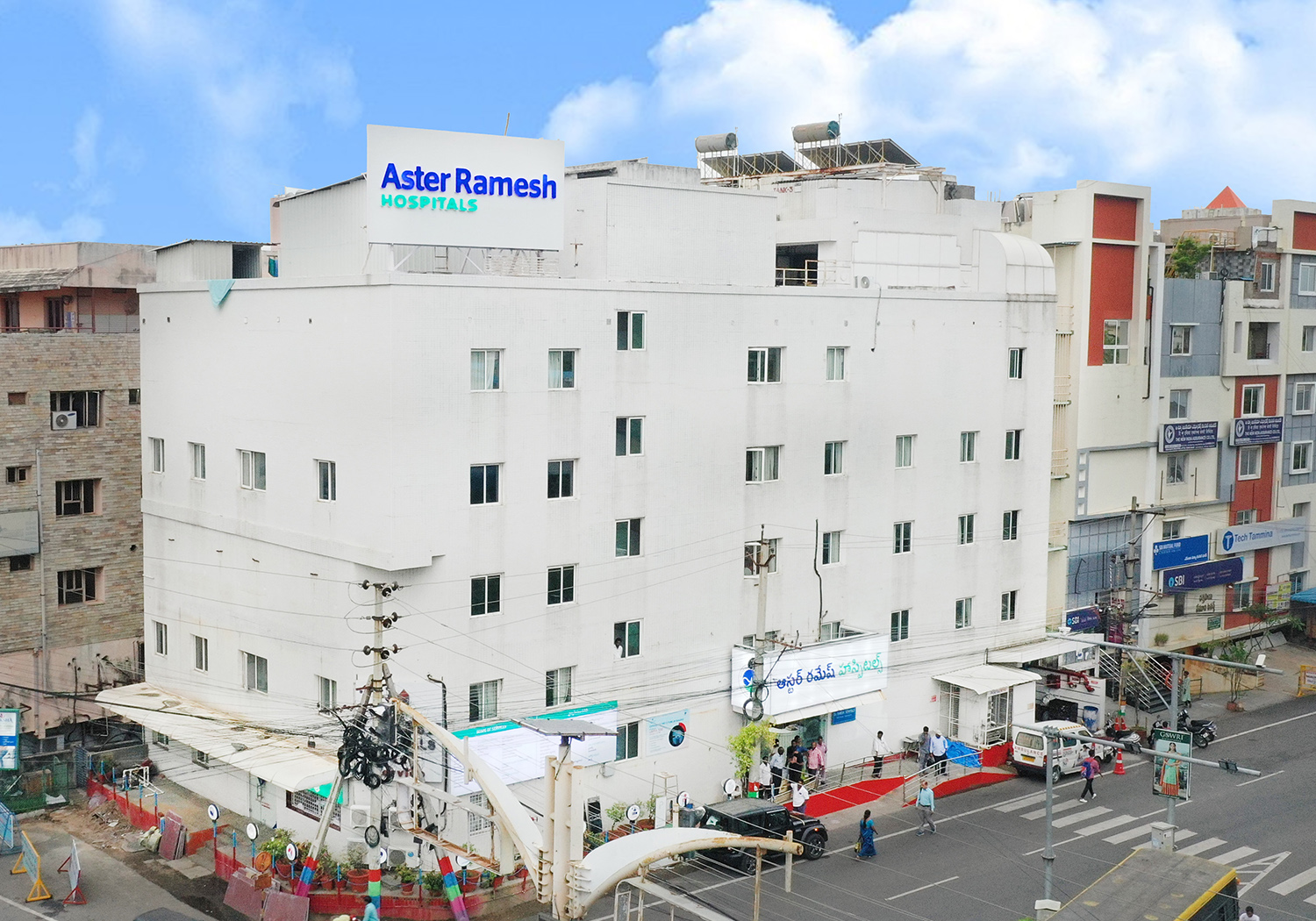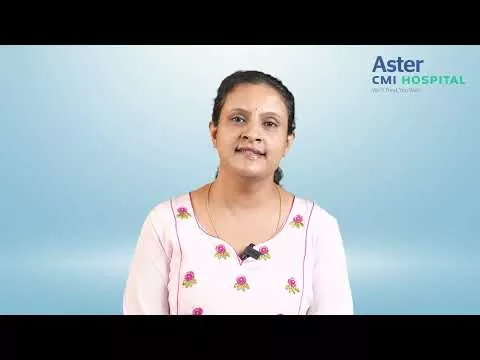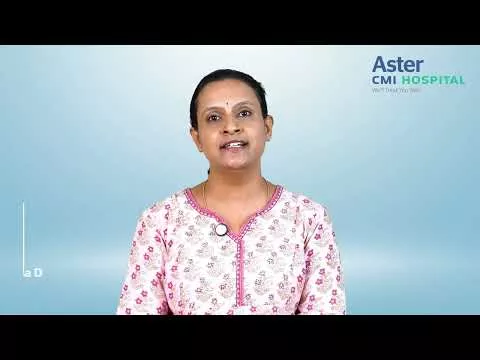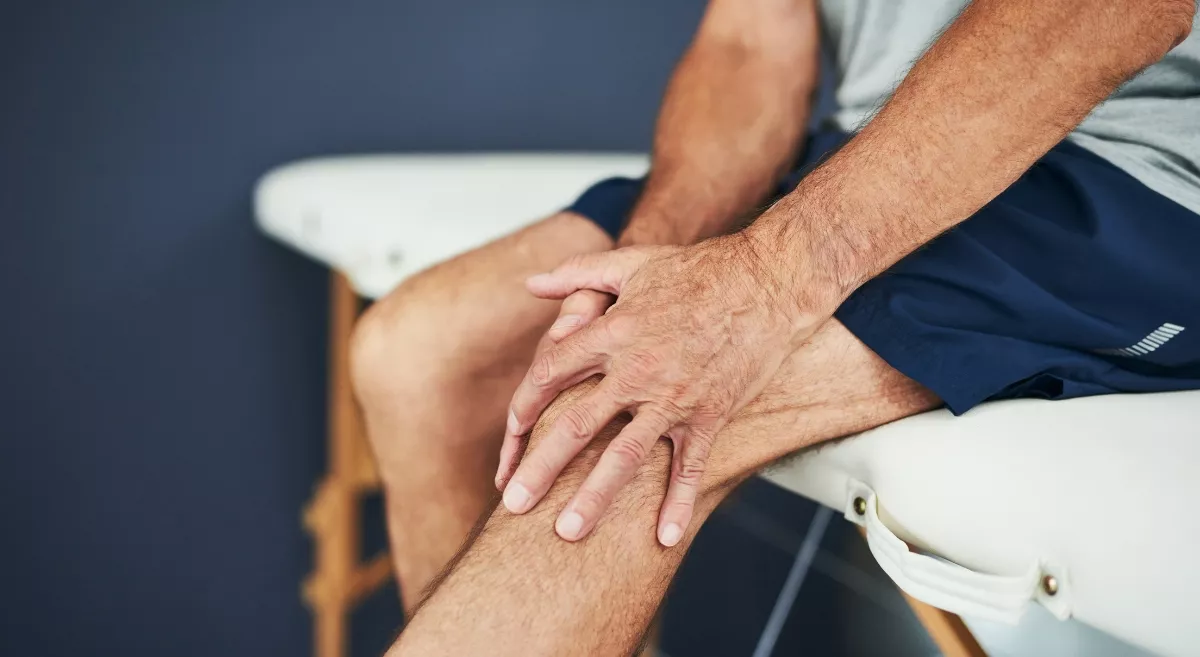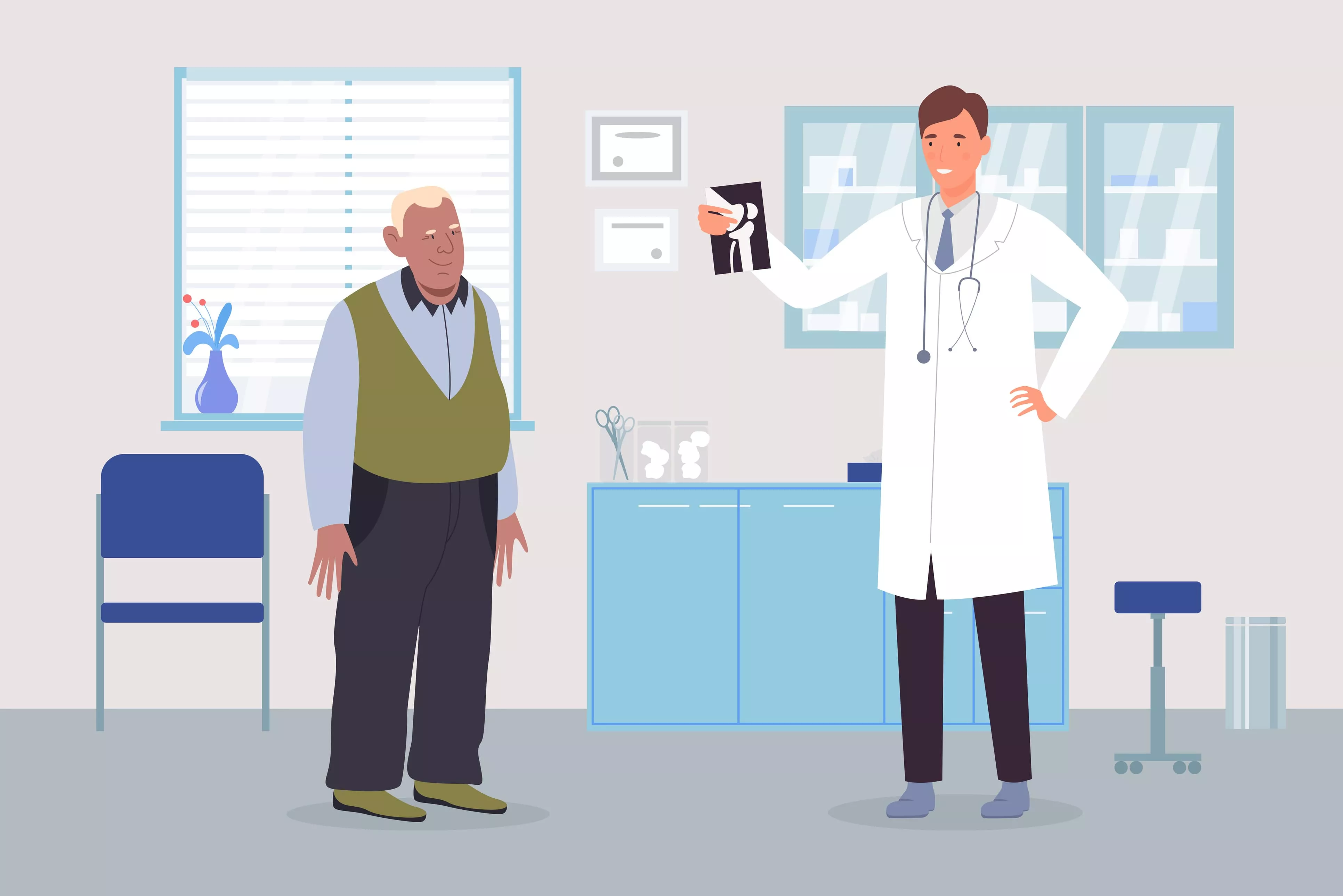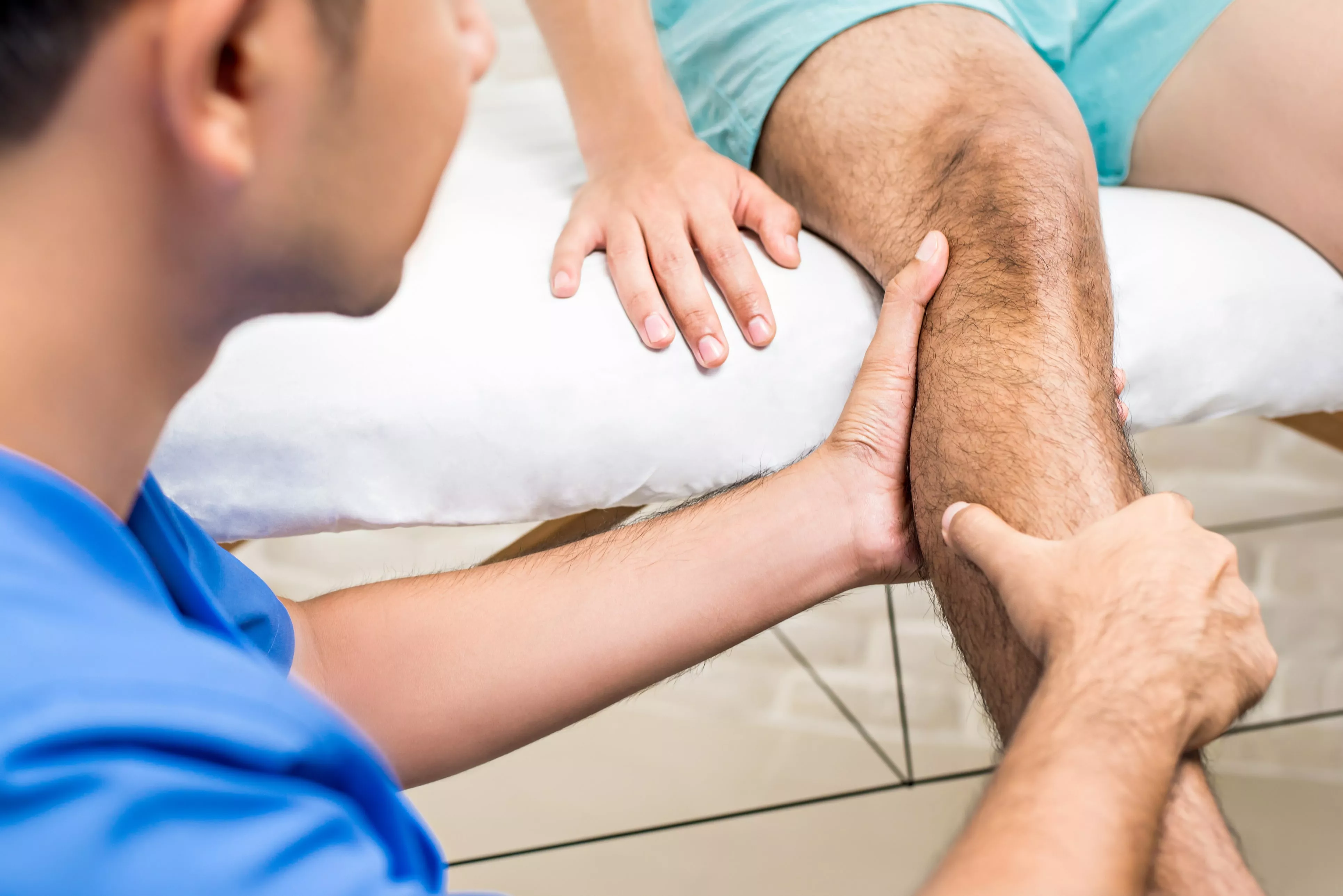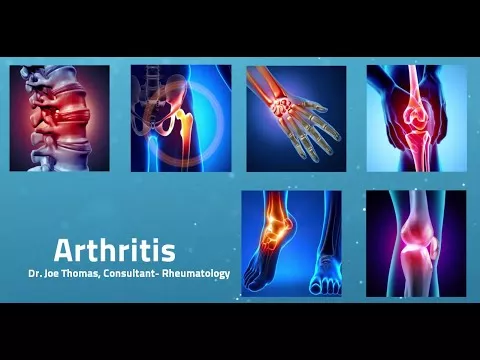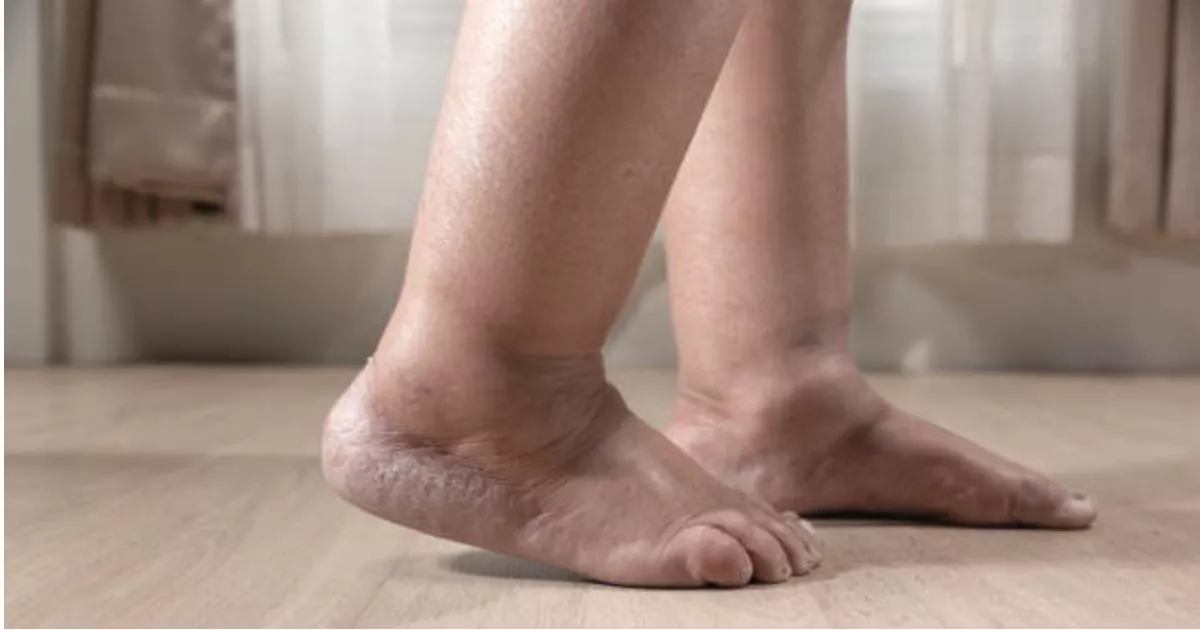The Department of Rheumatology at Aster Hospital deals with the diagnosis and management of various types of arthritis and other musculoskeletal conditions. Patients with stiffness in the joints and having any sort of confusion in the tissues and bones, including musculo‐skeletal torment can visit a Rheumatologist to preclude joint pain or to get convenient treatment. Aster Hospital has the most inclining imaging equipments like birefringent polarizing microscope, Ultrasonography, C‐Arm and Capillaroscopy to make precise diagnosis.
Our Doctors
We have some of the best specialists from around the world, they bring years of experience and offer evidence-based treatment to ensure the best care for you.
FAQs
Want to find out more about the treatment? The answer to your questions can be found below.
What is Arthritis?
Arthritis is a common disorder that affects joints. It can cause pain and inflammation, making it difficult to move or stay active. This disease is difficult to control because it is caused primarily by increasing age and family history.
What is Total Knee Replacement?
TKR is a common orthopaedic procedure that involves replacing the articular surfaces of the knee joint with smooth metal and polyethylene plastic that has been cross-linked.
Who is a Rheumatologist?
A rheumatologist is a physician, who has received further training in the diagnosis and treatment of musculoskeletal disease and systemic autoimmune conditions. Apart from the common arthritis like rheumatoid arthritis, osteoarthritis, gout, Rheumatologists are involved in treating complicated multisystem diseases like Vasculitis / SLE etc.
Which facilities are provided by the Department of Rheumatology at Aster Whitefield?
- State-of-the-art treatment and facilities for a wide range of Rheumatic and musculoskeletal diseases (RMDs).
- Dedicated Pediatric Rheumatologist to cater the special needs of growing childrens with Rheumatic disorders.
- A multi-disciplinary team consisting of trained and qualified Rheumatologists, Nurse Educators, and Customer Care Executives.
- Doctors with national and international expertise, who are actively involved in research work.
- Well-equipped Physiotherapy unit.
- Latest treatment facilities for outpatient care
- Collaborative work from leaders in other fields like gynaecology, dermatology, ophthalmology, neurology, radiology, physiotherapy, and others.
Is Rheumatoid arthritis an autoimmune disorder?
Yes, Rheumatoid arthritis is an auto-immune disease, like any other autoimmune disease, the immune system attacks healthy cells of the body by mistake causing inflammation and pain.
What are the early symptoms of rheumatoid arthritis?
Rheumatoid arthritis causes swelling and stiffness in the joints. Specifically, early morning stiffness of more than 30 min is an early sign of Inflammatory arthritis. Later, if untreated it leads to bone erosion and joint deformity.
Does physiotherapy help in rheumatic diseases/arthritis?
Yes, physiotherapy helps the patient to improve the movement of the joints by removing stiffness. Muscle strengthening and Massage can help reduce pain and improve joint functions for daily activities.
Are rheumatic diseases genetic?
Many forms of rheumatic diseases including arthritis have a genetic basis. It has been found that autoimmune diseases like rheumatoid arthritis are there in patients and their families as they share the same susceptibility genes for their immune systems.
Can patients suffering from Rheumatic diseases plan Pregnancy?
Yes, Like any other normal persons, all patients with Rheumatic disease can lead normal reproductive life if they are under care of a Rheumatologist. However patients with Autoimmune rheumatic diseases should always discuss their pregnancy plans with their Rheumatologist prior planning so that the medications can be optimised before planned pregnancy.
What advancements or technologies are utilized by Rheumatologists?
Rheumatologists utilize advancements such as biologic therapies for autoimmune diseases, advanced imaging techniques (MRI, ultrasound) for early detection of inflammation and damage, and telemedicine for remote patient monitoring and consultations.
What documents to carry on my first visit to a Rheumatologist?
For your first visit, carry:
- A referral letter from your primary care physician (if applicable).
- Comprehensive medical records and any relevant test results or imaging studies.
- A list of current medications.
- Your insurance information and a photo ID.
- Any notes on symptoms, dietary habits, lifestyle, or specific questions you have for the rheumatologist.
How should I prepare for my first visit to a Rheumatologist?
To prepare for your first visit:
- Gather your medical records and any previous test results, including imaging studies.
- Make a list of all medications you're currently taking.
- Prepare a detailed description of your symptoms and how they affect your daily life.
- Write down any questions or concerns you have.
- Bring a family member or friend for support, if possible.
How does a Rheumatologist decide on a treatment plan?
A rheumatologist decides on a treatment plan based on a comprehensive evaluation that includes a detailed medical history, physical examination, and diagnostic tests (such as blood tests and imaging studies). They consider factors like the type and severity of the disease, the patient's lifestyle, and their overall health.
What is the role of a Rheumatologist in a patient's treatment journey?
A rheumatologist plays a crucial role in a patient's treatment journey by diagnosing the condition, developing and managing a treatment plan tailored to the patient's needs, monitoring the disease's progression, and adjusting treatments as necessary. They also provide guidance on managing symptoms and improving quality of life.
What does a rheumatologist do?
Rheumatologists are medical experts who specialise in diagnosing and treating patients with autoimmune disorders and inflammatory diseases. They diagnose patients and provide treatments such as physical and occupational therapy, medications, and joint injections and aspirations. They also work closely with other specialists, such as eye doctors and cardiologists, to ensure that patients receive effective treatment.
What question you should ask a rheumatologist?
Patients must ask questions about their medical conditions, symptoms, and potential threats. They should know the duration of specific diseases, as some treatments could last years. They can also ask for the root cause of the problems and possible treatment options.
What are the most common types of conditions that rheumatologists treat?
Major conditions that rheumatologists at Aster Medcity Hospital treat are autoimmune and inflammatory diseases, tendonitis, fibromyalgia, back pain, gout, osteoporosis, musculoskeletal pain disorders, and osteoarthritis. They also collaborate with other medical specialists like eye doctors, dermatologists, cardiologists, and physical therapists for specific treatments.
When should I consider seeing a rheumatologist?
Physicians sometimes find it challenging to determine the cause of persistent joint and muscle pain. Therefore, patients must see a rheumatologist in Kochi to identify the root cause. Further, when patients are diagnosed with arthritis or a rheumatic disease such as osteoarthritis, SLE, vasculitis, or APS, it is advisable to see medical specialists at Aster Medcity Hospital in Kochi.
What is the role of a rheumatologist in a patient's treatment journey?
Rheumatologists in Kochi at Aster Medicity Hospital ensure patients’ recovery journeys are successful, helping them overcome severe autoimmune and inflammatory diseases. From diagnosing patients to deciding on treatment plans, rheumatologists play a vital role in ensuring that patients receive the utmost treatment and care.
How does a rheumatologist decide on a treatment plan?
Rheumatologists in Calicut at Aster MIMS follow a structured medical protocol to decide on personalised patient treatment plans. They conduct several lab tests, such as blood tests, joint fluid tests, urine tests, skin biopsy, and muscle biopsy. Moreover, they also conduct imaging tests, like X-rays, MRI scans, ultrasounds, and DEXA scans. After considering reports, they decide on treatment plans.
What advancements or technologies are utilised by rheumatologists?
Rheumatology treatment includes non-surgical treatment that includes assessing underlying health conditions through diagnosis tests, like MRIs, ultrasound, CT scans, ANA, anti-CCP, and fluid tests. They collaborate with cardiologists and surgeons when surgical treatments are required.
What documents should I carry on my first visit to a rheumatologist?
Patients are advised to carry medical reports and test results related to their previous treatment, genetic disorder reports, a list of current treatments or therapies, and a list of specific symptoms they experience. These documents help medical specialists decide on effective treatment plans.
How should I prepare for my first visit to a rheumatologist?
Patients are advised to prepare by visiting the hospital before their appointment time with rheumatologists. Also, they should know all guidelines and instructions related to the treatment process. Further, they must provide their medical documents and reports to medical staff and insurance cards to get insurance claims, if applicable.
What does a rheumatologist do?
Rheumatologists are medical experts in treating and diagnosing arthritis, addressing musculoskeletal conditions, and providing preventive care to patients suffering from autoimmune and inflammatory diseases. They diagnose rheumatic (inflammatory) disorders like osteoarthritis and autoimmune diseases like psoriatic arthritis. They also collaborate with other medical specialists to ensure effective treatment for patients.
What question you should ask a rheumatologist?
Patients are supposed to ask about the cause of the problems, available treatment options, potential threats, risks, and side effects associated with treatment plans and current symptoms. They should also know about the treatment process, fees involved, and conditions when surgeons would be required in the treatment plan.
What are the most common types of conditions that rheumatologists treat?
Rheumatologists in Kannur treat a wide range of medical disorders, including genetic disorders such as Beçhet’s disease, Osteoporosis, and Psoriatic arthritis. They also treat joint problems such as Ankylosing spondylitis, Bursitis, and Gout. Further, rheumatology treatment cures tendon issues such as Achilles tendinitis, De Quervain’s tendinosis, and Patellar tendonitis.
When should I consider seeing a rheumatologist?
You must consider seeing a rheumatologist in Kannur when experiencing Swollen lymph nodes, Swelling, Stiffness, Itching, and Dermatitis. You should also visit Aster MIMS Hospital when you have doubts related to your decided treatment plan or its duration or need to discuss inherited disorders.
What is the role of a rheumatologist in a patient's treatment journey?
Rheumatologists at Aster MIMS are vital in ensuring patients receive the best treatment and enable a risk-free recovery. From diagnosing patients and identifying the underlying threat to planning personalised treatments, the expertise of rheumatologists is commendable.
How does a rheumatologist decide on a treatment plan?
Expert rheumatologists conduct physical examinations, laboratory tests, blood tests, and bone density tests to identify and examine the underlying problems and their potential treatment solutions. They also review patients’ medical histories, test results of previous treatments, and documents on inherited diseases, and with their consent, they decide on treatment plans.
What advancements or technologies are utilised by rheumatologists?
Aster MIMS Hospital is equipped with medical equipment for diagnosing patients with arthritis and related diseases. These devices include laboratory kits like Rheumatoid Factor and Anti-CCP and imaging test equipment such as ultrasound, X-ray machines, and CT scanners. They also use bone densitometers and joint aspiration kits for effective condition analysis.
What documents should I carry on my first visit to a rheumatologist?
Patients are advised to carry their medical reports related to inherited diseases, muscle problems, and test results of previous treatments. They should also carry a list of current medications they consume and symptoms they experience. It gives detailed insights to rheumatologists, and an effective treatment plan can be formed.
How should I prepare for my first visit to a rheumatologist?
Patients must prepare by carrying all relevant medical documents, including inherited diseases. They should also prepare a list of questions and doubts regarding underlying diseases and treatment plans. They must reach the hospital before the appointment time and know all instructions to be followed for treatment.
What does a rheumatologist do?
Rheumatologists in Guntur are medical experts who specialise in diagnosing and treating autoimmune and inflammatory disorders and other arthritis diseases, such as osteoarthritis, systemic lupus erythematosus, and myositis. They also collaborate with eye doctors, cardiologists, and therapists to perform specific treatments.
What question you should ask a rheumatologist?
Patients must ask about their underlying health conditions, potential threat or serious conditions related to diseases, available treatment options and their benefits. Further, they should know complete details related to the treatment, potential side effects of medicines, and lifestyle changes required for speedy recovery.
What are the most common types of conditions that rheumatologists treat?
Rheumatologists are experts in treating a wide range of conditions, including arthritis and autoimmune and inflammatory disorders. They also treat joint problems like rheumatoid arthritis, gout, and osteoarthritis and muscle problems such as rhabdomyolysis, polymyositis, myasthenia gravis, and Charcot disease. Tendon issues are also treated in rheumatology.
When should I consider seeing a rheumatologist?
You should see a rheumatologist in Guntur when you experience persistent joint or muscle pain. Further, some diseases are difficult to diagnose in their initial stages; therefore, you must consult expert rheumatologists at Aster Ramesh before you get diagnosed with severe diseases. If you experience dermatitis, dry eyes and mouth, fatigue, or hair loss, consult these specialists.
What is the role of a rheumatologist in a patient's treatment journey?
Rheumatologists at Aster Ramesh play a vital role in ensuring patients receive the best care and treatment for their arthritis and related diseases. They provide preventive care and frequent appointments post-treatment to monitor patients’ progress and examine their health, and accordingly adjust their medications and treatment.
How does a rheumatologist decide on a treatment plan?
A rheumatologist in Vijayawada at Aster Ramesh uses evidence-based recommendations to tailor therapies for effectively treating rheumatic disorders. The treatment plan is based on the patient's examination, blood tests, imaging investigations, medical history, and symptoms.
What advancements or technologies are utilised by rheumatologists?
Innovations such as biological treatments, disease-modifying antirheumatic drugs (DMARDs), ultrasound-guided joint injections, and sophisticated imaging methods are used by rheumatologist in Vijayawada at Aster Ramesh to diagnose and treat rheumatic disorders with greater accuracy and efficacy.
What documents should I carry on my first visit to a rheumatologist?
Provide past medical records, imaging scans, blood test results, a list of all the drugs you're taking, information on allergies, and a thorough account of your symptoms and how they affect your day-to-day functioning. Add any pertinent medical history from your family.
How should I prepare for my first visit to a rheumatologist?
Gather pertinent medical records, jot down symptoms and their duration, identify any triggers or mitigating variables, and prepare questions on diagnosis, available treatments, and long-term care.
What does a rheumatologist do?
A rheumatologist is a physician who specialises in diagnosing and treating a broad spectrum of illnesses affecting the autoimmune system, muscles, joints, and bones. Using this knowledge, they determine the root cause of the patient's symptoms, create individualised treatment regimens, and recommend drugs to lower inflammation and halt the spread of the illness.
What question you should ask a rheumatologist?
Asking the right questions of your rheumatologist can help you learn more about your condition, including the precise diagnosis and any underlying reasons, the suggested course of action and its possible risks and benefits, and when you should expect to see results from the recommended course of action.
What are the most common types of conditions that rheumatologists treat?
Many autoimmune, inflammatory, and degenerative diseases, such as rheumatoid arthritis, osteoarthritis, gout, lupus, scleroderma, vasculitis, ankylosing spondylitis, psoriatic arthritis, fibromyalgia, tendinitis, and bursitis, are frequently treated by rheumatologist in Vijayawada MG Road at Aster Ramesh.
When should I consider seeing a rheumatologist?
Patients with unusual symptoms such as recurrent fevers, rashes, persistent joint pain, swelling, or stiffness that does not go away with rest or over-the-counter medications should consult a rheumatologist. Patients who also have a family history of autoimmune or rheumatic diseases should consider seeing a rheumatologist in Vijayawada MG Road at Aster Ramesh.
What is the role of a rheumatologist in a patient's treatment journey?
Since they offer specialised knowledge in the diagnosis, treatment, and management of complicated rheumatic disorders, rheumatologist in Vijayawada MG Road at Aster Ramesh play a critical role in their patients' medical journeys. The rheumatologist collaborates closely with the patient and the larger medical team to create a thorough, individualised strategy to maximise results and enhance the patient's quality of life.
How does a rheumatologist decide on a treatment plan?
Rheumatologists in Whitefield at Aster Bangalore do not usually create treatment plans. They provide referring doctors with interpretations of imaging data, which help them make treatment decisions. In some cases, they could schedule less invasive treatments in interventional radiology.
What advancements or technologies are utilised by rheumatologists?
Rheumatologists in Whitefield at Aster Bangalore use advanced imaging methods, such as musculoskeletal ultrasonography, to provide accurate diagnostic and therapy recommendations. They also use genetic testing to determine illness risk factors and forecast treatment outcomes. Computer-aided diagnostic systems (CADS) are used for more precise evaluations.
What documents should I carry on my first visit to a rheumatologist?
Bring all of your medical records, including imaging scans, test findings, and prior diagnoses. Keep a record of your immunisations, current prescriptions, and dietary supplements with you at all times. Add any letters of recommendation from your primary care physician.
How should I prepare for my first visit to a rheumatologist?
To prepare for your initial appointment, make a thorough note of your symptoms, including their length and how they affect your daily activities. Put together a family medical history with an emphasis on rheumatic conditions. Enumerate all of your queries and worries.
What is rheumatoid arthritis?
That causes the immune system to damage the cartilage of the joints.
What is Rheumatology?
Rheumatology represents a subspecialty in internal medicine and paediatrics, which is devoted to diagnosis and therapy of rheumatic and musculoskeletal diseases. Rheumatic and musculoskeletal diseases (RMDs) are a diverse group of diseases that commonly affect the joints, but can also affect the muscles, other tissues and internal organs. There are more than 200 different RMDs, affecting both children and adults.
When should I see a Rheumatologist?
All of us experience musculoskeletal pains which are self limiting and short lived. If your pain is not resolving in 1-2 weeks it is better to take an expert opinion. If joint symptoms are associated with following symptoms it is always advised to meet nearby Rheumatologist
1. Systemic symptoms like fever, weight loss, loss of appetite etc.
2. Most severe pain in the morning hours
3. More than 3 joints are involved at the same time
4. Skin rash, abdominal pain
What is Rheumatoid Arthritis?
Rheumatoid arthritis is an autoimmune disorder that predominantly affects the joints. Rheumatoid arthritis causes severe pain, swelling and stiffness in your joints, as a result, it becomes difficult to bend and use them. Rheumatoid arthritis can affect other organs too such as the eyes, lungs, heart, or skin.
Is Rheumatoid arthritis different from osteoarthritis?
Osteoarthritis is a very common type of arthritis that is caused by wear and tear of the cartilage that covers and protects the bones at the place of joints whereas, in rheumatoid arthritis, the immune system attacks the healthy joints.
Does the rheumatology department at Aster provide physiotherapy to arthritis patients?
There is a well-equipped physiotherapy unit with a team of excellent physiotherapists for the therapeutic management of joint pain and inflammation to bring comfort to the patient through exercise, IFT, Ultrasound, heat, and massage.
Are rheumatic diseases chronic?
Yes, rheumatic diseases are chronic. Many Rheumatic diseases are lifelong, though there are periods of remission when the patient feels better in absence of symptoms. In some patients, rheumatism may damage the skin, heart, eyes lungs, and blood vessels
Do Childrens get Rheumatic Diseases?
Yes! Unfortunately children can also suffer from many of the Rheumatic diseases. We have a dedicated Pediatric Rheumatology team to cater the needs of growing childrens and address their special needs.
Are vaccines safe for patients with Rheumatic diseases?
Yes, Not only vaccines are safe, they are strongly recommended for patients suffering from Autoimmune rheumatic diseases. The Immune disorder itself along with the drugs used in rheumatology practice make one susceptible for infections, for the same reason it is recommended to take regular vaccines for both adults and paediatric patients with Rheumatic diseases.
Will a Rheumatologist help manage side effects during treatment?
Yes, a rheumatologist will help manage side effects during treatment. They will monitor your condition and adjust the treatment plan as necessary to minimize side effects and ensure the treatment's effectiveness.
What question should you ask a Rheumatologist?
Questions to ask a rheumatologist might include:
- What is my diagnosis?
- What treatment options are available?
- Are there any side effects of the suggested treatments?
- How will this condition affect my lifestyle?
- Should I make any dietary or lifestyle changes?
- How often will I need follow-up visits?
When should I consider seeing a Rheumatologist?
You should consider seeing a rheumatologist if you experience persistent joint pain, swelling, stiffness, or if you have an autoimmune disease that affects the joints or muscles. Early referral from a primary care physician is also common when such symptoms are present.
What are the most common conditions that Rheumatologists treat?
Rheumatologists treat a wide range of conditions, including rheumatoid arthritis, lupus, osteoarthritis, gout, scleroderma, and spondyloarthropathies like ankylosing spondylitis.
What does a Rheumatologist do?
A rheumatologist is a doctor who specializes in diagnosing, treating, and managing diseases that affect the joints, muscles, and bones, as well as autoimmune diseases. These conditions often involve inflammation, pain, and chronic discomfort.
How does a rheumatologist decide on a treatment plan?
Rheumatologists at Aster Medcity Hospital conduct several tests, including laboratory tests and imaging tests using tools like X-ray machines and ultrasound. Further, they review patients’ medical history and past treatment results and also conduct blood tests and bone density tests. Consider overall factors when deciding on treatment plans.
What advancements or technologies are utilised by rheumatologists?
Aster Medcity Hospital in Kochi houses top medical devices that rheumatologists use to diagnose patients. These include diagnostic tools like MRI machines, CT scans, ultrasound machines, and X-rays. Further, equipment includes joint aspiration kits and bone densitometers for effective evaluation of underlying problems.
What documents should I carry on my first visit to a rheumatologist?
Patients must carry the documents for their blood test reports of antinuclear antibodies, rheumatoid factor, and erythrocyte sedimentation rate. They should also carry a list of current symptoms they experience, like joint pain or swelling, along with inherited medical disorders and related documents.
How should I prepare for my first visit to a rheumatologist?
Patients are advised to prepare by carrying all medical reports and documents related to their health conditions. They should also bring insurance cards and referral letters from primary care doctors, a list of current medicines, and a list of symptoms they experience. This information helps specialists determine personalised treatment plans.
What does a rheumatologist do?
Rheumatologists are medical experts who diagnose and treat patients with persistent joint, muscle, and tendon problems. They provide non-surgical treatments that include medicines, joint injections, joint aspiration, physical therapy, and occupational therapy. They also treat autoimmune and inflammatory diseases.
What question you should ask a rheumatologist?
Patients are supposed to know about the reason behind the symptoms and problems they experience. They should also know about the overall treatment process, fees, duration, possibility of complete recovery, and underlying threats. They must ask for lifestyle changes to adapt to during and post-treatment.
What are the most common types of conditions that rheumatologists treat?
Expert rheumatologists at Aster MIMS treat major health conditions, such as genetic disorders that include systemic lupus erythematosus, sjögren’s syndrome, and scleroderma, and joint problems such as rheumatoid arthritis, osteoarthritis, and bursitis. They also treat tendon issues and muscle conditions and provide personalised treatment options.
When should I consider seeing a rheumatologist?
Patients are advised to see a rheumatologist in Calicut when they experience muscle weakness, itching, hair loss, fatigue, dry eyes, dermatitis, or swelling. Further, they should also see medical specialists during the recurrence of symptoms after taking initial treatment from primary care physicians or when they are referred to Aster MIMS Hospital.
What is the role of a rheumatologist in a patient's treatment journey?
Expert rheumatologists at Aster MIMS play a vital role in patients’ treatment and recovery journeys. They identify the underlying risks and health conditions and provide personalised treatment, considering their medical reports and overall health.
How does a rheumatologist decide on a treatment plan?
Expert rheumatologists at Aster MIMS Hospital conduct and run several medical tests, including lab and imaging tests, to identify the cause of underlying health conditions. They also conduct biopsies to assess autoimmune diseases, followed by blood tests, bone density tests, ultrasounds, and heart tests to identify potential threats to patients’ health.
What advancements or technologies are utilised by rheumatologists?
The rheumatology treatment plan does not require any surgical equipment or devices. Further, Aster MIMS Hospital equips top diagnostic devices, like X-ray/CT/ 3T MRI, for joint scans and laboratory tests, such as ESR, Rheumatoid Factor, anti-CCP, and ANA. Their major treatment plan depends on cortisone injections, medicine management, and physical rehabilitation.
What documents should I carry on my first visit to a rheumatologist?
Patients are advised to obtain medical reports related to joint and muscle problems. They should also carry test results from previous treatments and referral letters from primary care doctors. These documents provide detailed insights into current muscle problems and autoimmune diseases, ensuring effective treatment and care decision-making.
How should I prepare for my first visit to a rheumatologist?
Patients are advised to prepare by carrying all medical documents and reports related to their inflammatory and autoimmune diseases. They should also prepare a list of symptoms they currently experience and specific medications they consume, followed by reaching the hospital earlier than their scheduled appointment time.
What does a rheumatologist do?
Rheumatologists in Kottakkal are medical experts who diagnose and treat autoimmune and inflammatory diseases, muscle problems, and musculoskeletal conditions in children and adults. They diagnose patients through laboratory and imaging tests and provide comprehensive treatment plans for diseases like rheumatoid arthritis, scleroderma, and osteoarthritis.
What question you should ask a rheumatologist?
Patients must ask about the reason behind the underlying conditions and symptoms they experience. They should also know if the diseases can be cured or if treatment would last for years or a lifetime. Further, they must know the treatment process and their benefits, treatment fees, and lifestyle changes required for effective recovery.
What are the most common types of conditions that rheumatologists treat?
Rheumatologists treat a wide range of arthritis diseases, including temporal arteritis, polymyalgia rheumatica (PMR), sarcoidosis, systemic lupus erythematosus (SLE), osteoarthritis, and rheumatoid arthritis (RA). They also treat joint problems, tendon issues, and several muscle conditions, such as rhabdomyolysis, myopathies, and myasthenia gravis.
When should I consider seeing a rheumatologist?
When your primary care doctor cannot determine the root cause of joint pain or related diseases, you should consult a rheumatologist in Kottakkal. Also, if you have positive test results for erythrocyte sedimentation rate (ESR), rheumatoid factor (RF), and antinuclear antibodies (ANA), consider making an appointment with rheumatologists at Aster MIMS Hospital.
What is the role of a rheumatologist in a patient's treatment journey?
Rheumatologists in Kottakkal play a vital role in patients’ treatment journey. From diagnosing and identifying the underlying health conditions and conducting several tests to designing treatment plans and working closely with medical specialists, their role significantly impacts the overall patients’ recovery process.
How does a rheumatologist decide on a treatment plan?
Expert rheumatologists perform biopsies to examine the symptoms of autoimmune diseases, blood tests and DEXA scans, and diagnose patients through CT scans, ultrasounds, and chest X-rays. They also perform heart tests, Electromyograms, and endoscopy to get detailed insights into health conditions and form a sound treatment plan.
What advancements or technologies are utilised by rheumatologists?
The diagnosis process in rheumatology consists of medical equipment, like CT scanners, X-ray machines, ultrasound machines, Bone densitometers, Joint aspiration kits, and Laboratory testing equipment. These do not include surgical equipment since rheumatology treatment includes medications and therapy treatment.
What documents should I carry on my first visit to a rheumatologist?
Patients are advised to carry their medical reports of arthritis, documents of inherited diseases, and test results of previous treatment undergone. They should also bring a referral letter from their primary care doctors, a list of current symptoms they experience, and the medications they are prescribed.
How should I prepare for my first visit to a rheumatologist?
You must prepare by providing complete medical documents related to your health conditions. Further, you should make yourself aware of the treatment process by consulting with medical staff and reading all related guidelines. Visiting the hospital before the appointment time should be followed.
What does a rheumatologist do?
Using their specialised knowledge in rheumatology, rheumatologists diagnose, treat, and manage autoimmune and inflammatory illnesses that affect the joints, muscles, and bones, such as lupus and arthritis, with the goal of improving patient outcomes.
What question you should ask a rheumatologist?
Inquire about the diagnosis, available treatments, possible adverse effects, long-term care, lifestyle modifications, and coping mechanisms. Ask about prescription regimens, physical treatment, and the tracking of the course of the illness.
What are the most common types of conditions that rheumatologists treat?
Rheumatologist in Vijayawada at Aster Ramesh often treat autoimmune and inflammatory disorders that affect the musculoskeletal system, including psoriatic arthritis, osteoarthritis, lupus, gout, ankylosing spondylitis, and rheumatoid arthritis.
When should I consider seeing a rheumatologist?
If you have been diagnosed with a rheumatic illness that requires specialised treatment, or if you are suffering chronic joint pain, swelling, stiffness, or other symptoms suggestive of an inflammatory or autoimmune disorder, think about consulting a rheumatologist in Vijayawada at Aster Ramesh.
What is the role of a rheumatologist in a patient's treatment journey?
To achieve the best possible outcomes for their patients, rheumatologists in Vijayawada at Aster Ramesh offer complete care for rheumatic disorders, including diagnosis, therapy, and long-term management. They also monitor patients' progress, modify treatment regimens, and work in tandem with other medical specialists.
How does a rheumatologist decide on a treatment plan?
A rheumatologist in Vijayawada MG Road at Aster Ramesh performs a thorough physical examination, orders further tests as necessary, and carefully evaluates the patient's medical history, symptoms, and test findings to decide on the best course of treatment. The patient's general health, way of life and personal preferences are then considered.
What advancements or technologies are utilised by rheumatologists?
Advanced technology and procedures are employed by rheumatologist in Vijayawada MG Road at Aster Ramesh to improve their treatment approaches and diagnostic skills. These include enhanced imaging methods that provide more comprehensive visualisation of soft tissue and joint abnormalities, such magnetic resonance imaging (MRI) and high-resolution ultrasound. Molecular and genetic testing is also used to determine indicators that can direct individualised treatment plans.
What documents should I carry on my first visit to a rheumatologist?
It is advised to bring complete medical records, including past test results, imaging studies, and medication history, to ensure a successful initial consultation with a rheumatologist. supplying a list of all the drugs, vitamins, and allergies that are currently taken.
How should I prepare for my first visit to a rheumatologist?
Patients should gather and make copies of their medical records before their initial visit with a rheumatologist. They should also jot down a note of all the symptoms they are experiencing, when they first appeared, and any triggers for them. To ensure that all of your worries are handled during the appointment, make a list of questions you want to ask the rheumatologist.
What does a rheumatologist do?
A radiologist diagnoses illnesses by interpreting diagnostic pictures from CT, MRI, and X-ray studies. They carry out image-guided surgeries, diagnose anomalies, and direct therapies. Radiologists work in tandem with other medical professionals to deliver all-encompassing patient care.
What question you should ask a rheumatologist?
Find out from a radiologist what the pictures depict. Are the results concerning? Is more imaging required? What are the procedure's advantages and disadvantages? How does this impact my course of therapy or diagnosis? These questions help you understand imaging data and their consequences.
What are the most common types of conditions that rheumatologists treat?
Rheumatoid arthritis, osteoarthritis, lupus, gout, fibromyalgia, ankylosing spondylitis, psoriatic arthritis, vasculitis, and osteoporosis are among the common illnesses that rheumatologists in Whitefield at Aster Bangalore treat. They also treat less prevalent autoimmune diseases and inexplicable discomfort in the muscles or joints.
When should I consider seeing a rheumatologist?
If you have chronic joint pain, swelling, or stiffness, you should consider visiting a rheumatologist in Whitefield at Aster Bangalore, particularly if it affects several joints or is accompanied by systemic symptoms like exhaustion. If autoimmune disorders run in your family or if your primary care physician detects a rheumatic issue, get a referral.
What is the role of a rheumatologist in a patient's treatment journey?
Rheumatologist in Whitefield at Aster Bangalore is an important medical team member. They offer professional diagnosis, create and modify treatment programmes, and track the development of illnesses. With the goal of enhancing long-term results and quality of life, rheumatologists inform patients about their disorders, coordinate care with other specialists, and provide continuing support for managing chronic illnesses.
Patient Stories
Our patients are our best advocates, hear the inspiring stories of their treatment journey
Blogs
The source of trustworthy health and medical information. Through this section, we provide research-based health information, and all that is happening in Aster Hospital.

